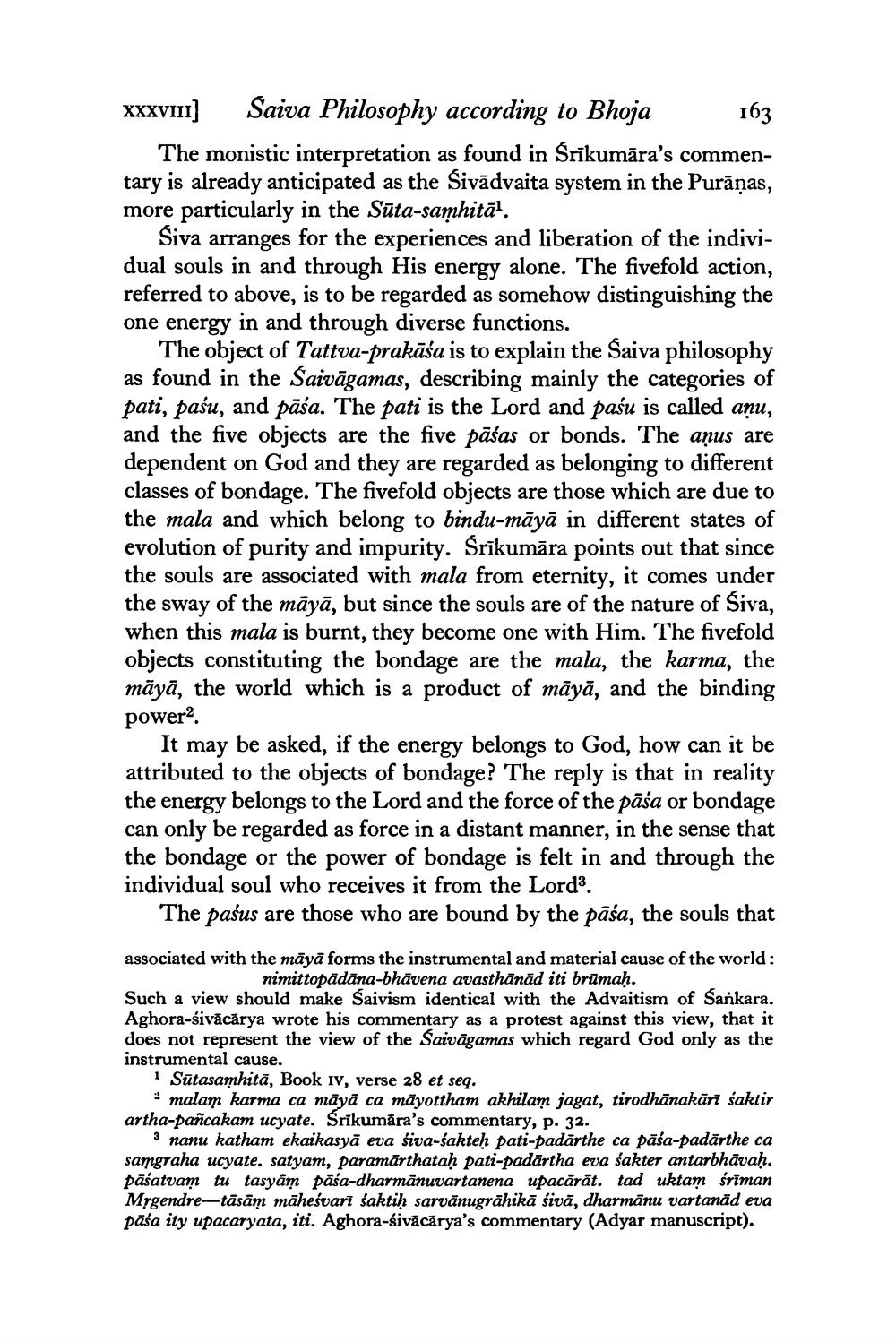________________
XXXVIII] Saiva Philosophy according to Bhoja 163
The monistic interpretation as found in Srikumāra's commentary is already anticipated as the Sivādvaita system in the Purāņas, more particularly in the Sūta-samhitāl.
Siva arranges for the experiences and liberation of the individual souls in and through His energy alone. The fivefold action, referred to above, is to be regarded as somehow distinguishing the one energy in and through diverse functions.
The object of Tattva-prakāśa is to explain the Saiva philosophy as found in the Saivāgamas, describing mainly the categories of pati, pašu, and pāśa. The pati is the Lord and pašu is called aņu, and the five objects are the five pāśas or bonds. The aņus are dependent on God and they are regarded as belonging to different classes of bondage. The fivefold objects are those which are due to the mala and which belong to bindu-māyā in different states of evolution of purity and impurity. Śrīkumāra points out that since the souls are associated with mala from eternity, it comes under the sway of the māyā, but since the souls are of the nature of Siva, when this mala is burnt, they become one with Him. The fivefold objects constituting the bondage are the mala, the karma, the māyā, the world which is a product of māyā, and the binding power2.
It may be asked, if the energy belongs to God, how can it be attributed to the objects of bondage? The reply is that in reality the energy belongs to the Lord and the force of the pāśa or bondage can only be regarded as force in a distant manner, in the sense that the bondage or the power of bondage is felt in and through the individual soul who receives it from the Lord.
The pašus are those who are bound by the pāśa, the souls that
associated with the māyā forms the instrumental and material cause of the world:
nimittopädāna-bhāvena avasthānād iti brūmah. Such a view should make Saivism identical with the Advaitism of Sankara. Aghora-śivācărya wrote his commentary as a protest against this view, that it does not represent the view of the Saivāgamas which regard God only as the instrumental cause.
Sūtasamhită, Book iv, verse 28 et seq.
malam karma ca māyā ca māyottham akhilam jagat, tirodhānakāri saktir artha-pañcakam ucyate. Srikumāra's commentary, p. 32.
3 nanu katham ekaikasyā eva siva-sakteh pati-padārthe ca pāśa-padārthe ca samgraha ucyate. satyam, paramārthataḥ pati-padārtha eva sakter antarbhāvaḥ. pāśatvam tu tasyām pāśa-dharmānuvartanena upacārät. tad uktam śrīman Mrgendre--tāsām māheśvari saktih sarvānugrāhikā śivā, dharmānu vartanäd eva pāśa ity upacaryata, iti. Aghora-śivācārya's commentary (Adyar manuscript).




